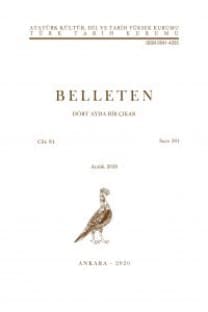35. Uluslararası Asya ve Kuzey Afrika Araştırmaları Kongresi (The 35th International Congress of Asian and North-African Studies) Budapeşte, 7-12 Temmuz 1997
7-12 Temmuz 1997’de Budapeşte’de yapılan 35. Uluslararası Asya ve Kuzey Afrika Araştırmaları Kongresi’ne ancak 7 Temmuz Pazartesi günü akşamı katılabildim. Bu aslında fiilen katıldığım gün değildi. Zira biraz geriye gidip hikâyeyi baştan almak gerekir. Anladığım kadarıyla CIEPO (Osmanlı Öncesi ve Osmanlı Araştırmaları) Başkanı Jean Louis Bacque-Grammont, bu kongre içinde bir CIEPO seksiyonu açabilmek için beni ve CIEPO’ya üye bazı kişileri gerek Türkiye’den ve gerekse diğer ülkelerden davet etmişti. Bu çerçevede hem bildiri başlığımı hem de bildiri özetimi gönderdim. Ancak daha sonra arzedeceğim gibi Budapeşte’ye vardığımda listede adımı bulamadım. Davetiyeyi aldıktan sonra kongreye katılma kararı verdim ve gerekli girişimlerde bulundum. Ancak Budapeşte’ye hareket etmeme bir kaç gün kala yeşil pasaporta dahi Macaristan’ın vize uyguladığının haberini almış, buna üzülmemin yanında, Türkiye’nin bize vize uygulayan tüm ülkelere neden vize uygulamadığına içerlemiştim. Ancak böyle bir uygulamanın olmadığını öğrenince kendimi Budapeşte’de buldum.
The 35th International Congress of Asian and North-African Studies (Budapeşte, 7-12 July 1997)
J.L. Bacque-Grammont, the president of CIEPO, made arrangements for the members to attend 35th International Congress of Asian and North African Studies held in Budapest (7-12 July 1977). The papers on Ottoman and Turkish Studies were delivered on Monday. Tuesday, Thursday and Friday. New arrangements were made for the members of CIEPO to deliver their papers on Thursday and Friday in a separate hall within the same building. There were papers that attracted my attention in other sections delivered on the same days. These papers were under the sections of Islamic, Arab, Turkic and Hindu Studies. A close study of the program revealed that there were also interesting papers under many other sections such as Mongol, Tibet, Buddhist and Chinese Studies. There were interesting papers by scholars such as E.A. Zachariado (Notes on the Wives of Emirs in 14th Century Anatolia) and K.R. Hopwood (Material Culture and Ottoman History) that I had already missed. However I enjoyed listening to the papers delivered by the scholars such as D. Kushner, J. Landau, C. Römer, R. Dankoff and Taciser Onuk in various fileds of Ottoman History. I made my own arrangement to travel within Hungary. I could only find time to visit Visegrad. Györ and Estergon. No doubt there were many other places that were worth visiting.
Keywords:
Budapest, 7-12 July 1997, The 35th International Congress of Asian and North-African Studies Hungary,
- ISSN: 0041-4255
- Yayın Aralığı: Yılda 3 Sayı
- Başlangıç: 1937
- Yayıncı: Türk Tarih Kurumu
Sayıdaki Diğer Makaleler
"Decima Musarum": Anna Komnena'nın Aleksias'ı Üzerine Bir Değerlendirme
Bademağacı Kazıları 1997 ve 1998 Yılları Çalışma Raporu
Hagios Aberkios Kilisesi İskelet Topluluğunun Antropolojik Açıdan İncelenmesi
Kayseri'nin Yazır Köyü'nde Bir Selçuklu Mescidi: Yazır Camii
Bazı Bulgular Işığında Anadolu'da Kimmer ve İskit Varlığı Üzerine Gözlemler
Modern Greece and the Sephardim of Salonica an Overview
One of the Samples of the Influences of Avicenna on the Ottoman Medicine, Shams Al-Din Itaqi
